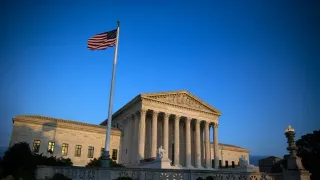
5 hours ago
Boston Hotel Issues Apology and Policy Change After Restroom Discrimination Against Lesbian Couple
READ TIME: 4 MIN.
On November 3, 2025, the Liberty Hotel became the center of national attention after a lesbian couple was confronted by a security guard who accused one partner of being a man and subsequently forced both women to leave the premises. The incident, which was swiftly reported to state authorities, resulted in a formal discrimination complaint and ignited widespread discussion about the experiences of LGBTQ+ people in public accommodations, particularly around gender expression and identity. In response, the hotel issued a public apology and announced new policies designed to prevent similar incidents in the future, marking a significant moment for LGBTQ+ rights and visibility in Massachusetts and beyond .
According to multiple reports, the confrontation occurred when a security guard at the hotel accused one member of the couple of "not being a woman" and insisted that she leave the women’s restroom. The couple, visibly distressed, was subsequently escorted off the property, prompting them to file a formal complaint with the Massachusetts Commission Against Discrimination . The complaint cited not only the actions of the security guard but also the lack of immediate support from hotel management, underscoring the need for comprehensive staff training on LGBTQ+ issues .
The state’s anti-discrimination laws explicitly protect individuals on the basis of sexual orientation and gender identity, and this case quickly drew attention from advocacy organizations, legal experts, and local officials. LGBTQ+ groups in Massachusetts emphasized that such experiences are far from isolated, calling for increased accountability and education within the hospitality sector. The Boston hotel’s initial response was criticized for being slow and inadequate, which fueled public outrage on social media and prompted calls for a boycott .
In the days following the state complaint, the hotel’s management issued a public apology to the couple and to the broader LGBTQ+ community. The statement acknowledged the harm caused by the incident, pledged to conduct an internal review, and announced a partnership with local LGBTQ+ organizations to implement mandatory sensitivity and anti-discrimination training for all staff. Additionally, the hotel introduced new signage and protocols to ensure that restrooms remain accessible and safe for transgender and gender-nonconforming people .
This incident in Boston is part of a wider pattern of challenges faced by LGBTQ+ people, especially those whose gender presentation does not conform to societal expectations. National surveys have consistently found that transgender people and gender-nonconforming individuals encounter disproportionate rates of harassment, denial of service, and exclusion in hotels, restaurants, and other public venues .
Legal protections exist in many states, but enforcement and education remain inconsistent. The Massachusetts experience demonstrates both the strength of civil rights frameworks and the necessity of vigilant oversight and community advocacy to ensure that policies are meaningfully implemented and respected .
Local activists and advocacy groups such as GLAD and MassEquality praised the couple for coming forward and emphasized the importance of reporting discrimination. “No one should be made to feel unsafe or unwelcome in a public space because of who they are,” said a GLAD spokesperson in a statement to the press . For many, the hotel’s apology and policy changes represent progress, but activists caution that ongoing vigilance is needed to combat subtle forms of bias and to support those who may not feel empowered to speak out.
The Boston hotel’s rapid policy overhaul sets an important precedent for the hospitality sector, which has long struggled with balancing customer service and inclusivity. Industry experts note that comprehensive training on LGBTQ+ issues—including the nuances of gender identity, pronoun usage, and family structures—is essential for creating safe and welcoming environments for all guests . Major chains and independent hotels alike are increasingly recognizing that affirming policies are not only ethical but also good for business, as travelers prioritize inclusive and respectful service.
Despite significant progress, LGBTQ+ people continue to face barriers in public spaces. Advocacy groups urge hotels and other public accommodations to move beyond reactive measures and proactively foster cultures of respect and belonging. Recommendations include routine staff training, clear anti-discrimination signage, and partnerships with local LGBTQ+ organizations to ensure that policies are responsive to community needs .
In Massachusetts, the couple at the center of the Boston hotel incident has expressed hope that their experience will lead to greater awareness and change. Their willingness to speak out has spurred important conversations within the hospitality industry and among policymakers, underscoring the power of personal stories to drive systemic reform.
The Boston hotel incident, and the subsequent apology and policy changes, reflect both the persistent challenges and the growing momentum for inclusion within public accommodations. As hotels and other venues work to implement comprehensive training and anti-discrimination policies, the experiences of LGBTQ+ people must remain central to these efforts. Continued advocacy, education, and accountability are essential to ensuring that all individuals—regardless of sexual orientation, gender identity, or expression—can access public spaces with dignity and safety .






